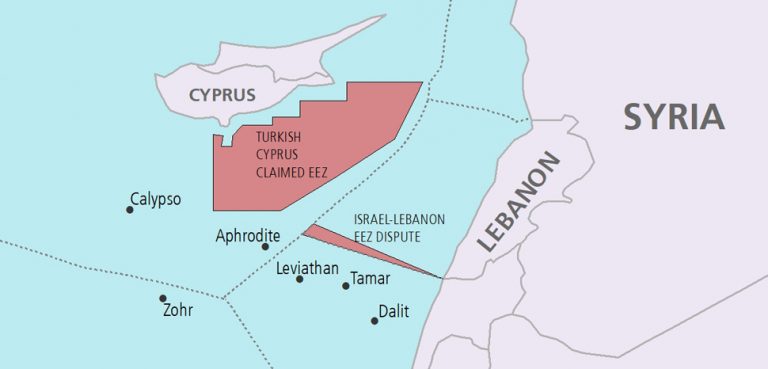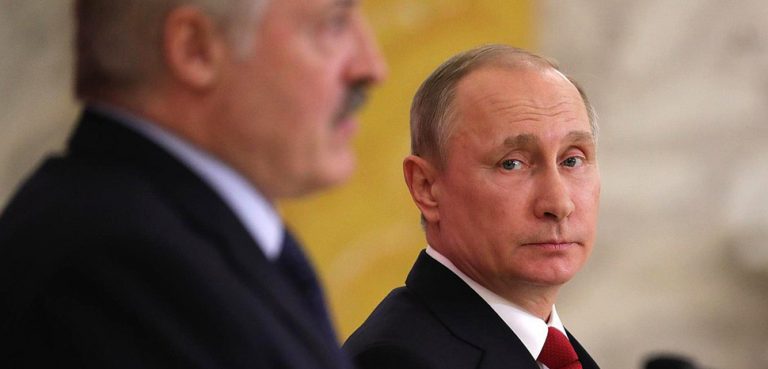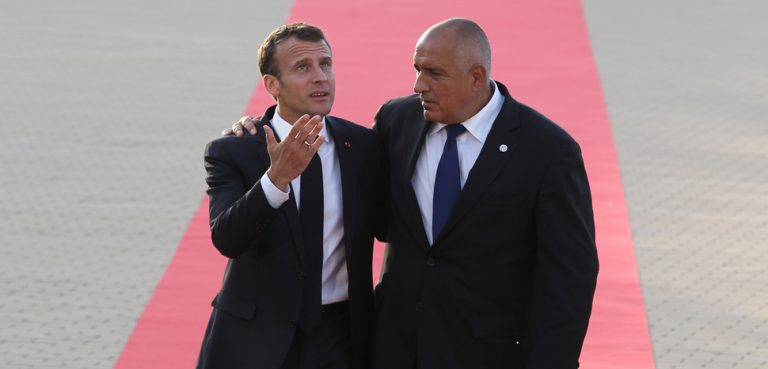Germany’s recent federal election on February 23, 2025, saw the center-right Christian Democratic Union (CDU) and its Bavarian sister party, the Christian Social Union (CSU), secure 28.5% of the vote, making them the dominant force in the Bundestag. The result puts CDU leader Friedrich Merz in a strong position to become Germany’s next chancellor, with coalition discussions already in motion. Given the CDU/CSU’s centrist approach, the new government is expected to bring greater stability and coherence than its predecessor. This article delves into the key priorities and challenges ahead, including economic revitalization, migration policies, climate action, and Germany’s evolving foreign relations.
CDU coalition could be more stable than its predecessor
The CDU/CSU won 208 seats in the 630-seat Bundestag, necessitating a coalition to secure a governing majority. The most viable partnership appears to be with the center-left Social Democratic Party (SPD), forming what has historically been called a “Grand Coalition.” While these parties have divergent ideological perspectives, their collaboration is expected to be more stable than the previous three-party government composed of the SPD, Greens, and Free Democratic Party (FDP).
The previous coalition had been plagued by internal disagreements, particularly over economic and climate policies. In contrast, the CDU/CSU and SPD, despite their ideological differences, have a history of working together in times of political uncertainty, making this alliance a practical choice. While the CDU/CSU is expected to push for pro-business reforms and stricter migration policies, the SPD will likely advocate for more social welfare measures, creating a policy balance that can appeal to a broad segment of the electorate.
Coalition negotiations, which could extend until mid-April, will focus on compromises over fiscal policies, climate initiatives, and foreign affairs. One of the most contentious issues will be the fiscal constraints imposed by Germany’s “debt brake” rule, which limits new borrowing. The CDU/CSU is likely to advocate for maintaining this restriction, whereas the SPD may push for exemptions to allow increased spending on infrastructure and social programs. Additionally, energy policy is expected to be another area of debate, with the CDU/CSU favoring a pragmatic, industry-friendly approach and the SPD seeking stronger environmental protections.
Foreign policy discussions will also be crucial, particularly regarding Germany’s stance on Russia, China, and the United States. While both parties generally agree on supporting Ukraine and strengthening EU defense cooperation, differences may arise over trade relations and military spending commitments. The outcome of these negotiations will ultimately shape Germany’s role in global affairs and determine the level of influence Berlin can exert within the European Union.
Reviving an economy in the doldrums
One of the most pressing concerns for the new government is addressing Germany’s economic stagnation. With GDP contracting by 0.3% in 2022 and another 0.2% in 2024, economic revitalization will be at the core of the administration’s agenda. High energy costs, reduced industrial competitiveness, and labor shortages have hampered growth, necessitating a multi-faceted approach. The CDU/CSU is advocating for tax cuts, industrial subsidies, deregulation, and increased public investments to stimulate economic activity. Additionally, the government is expected to prioritize workforce development initiatives, including vocational training programs and incentives to attract skilled labor from abroad, to mitigate the long-term impact of an aging workforce.
A significant challenge lies in the country’s strict “debt brake,” a constitutional measure that limits government borrowing. This provision, designed to ensure fiscal discipline, has constrained public investment in infrastructure, digital transformation, and green energy projects. In response, policymakers may explore amending borrowing regulations or employing alternative financial instruments such as special-purpose vehicles to create fiscal flexibility while maintaining economic prudence. Some proposals may involve issuing targeted bonds for critical infrastructure projects or leveraging public-private partnerships to attract external investments.
Moreover, the administration is likely to focus on reducing bureaucratic hurdles that have historically slowed business growth and innovation. Simplifying regulatory processes for startups and small enterprises, streamlining permit procedures for industrial projects, and enhancing digital government services are all expected to be part of a broader strategy to foster a more dynamic business environment.
Changes ahead for migration policy
Germany’s new government is expected to introduce a more stringent immigration framework, reflecting growing public concerns over security, integration, and labor market pressures. The proposed measures include tightening border controls, increasing surveillance at key entry points, and implementing technological solutions such as automated systems for document verification. Authorities are also likely to enhance cooperation with neighboring countries to streamline deportation processes and prevent illegal crossings.
One of the central aspects of the new approach is accelerating deportations, particularly for asylum seekers whose applications have been rejected. This policy includes expanding detention facilities to accommodate individuals awaiting repatriation and increasing diplomatic engagement with countries of origin to expedite the process. Special emphasis will be placed on repatriating individuals with criminal records or those deemed a security risk, a move that aligns with CDU/CSU’s broader goal of reinforcing public safety.
While the CDU/CSU is pushing for these stricter policies to enhance border security and national cohesion, the SPD is expected to push back on some of the more rigid aspects. Discussions within the coalition will likely revolve around ensuring that deportation measures adhere to human rights standards while addressing the root causes of migration. The SPD is also advocating for pathways to integration for skilled migrants, balancing control measures with policies that recognize the economic contributions of certain immigrant groups.
Additionally, Germany’s decision to continue internal border controls within the Schengen Area is likely to provoke diplomatic discussions with European neighbors. Countries such as the Netherlands and Poland have expressed concerns about the long-term impact of these measures on trade and travel. This ongoing debate underscores the broader challenge of maintaining national security while upholding Germany’s commitments to European integration and the principles of free movement within the EU.
CDU will pivot on climate and energy policy
Under CDU/CSU leadership, Germany’s climate policy is poised to shift toward a more pragmatic, industry-friendly direction. While the 2045 net-zero emissions target remains intact, economic competitiveness and energy security will take precedence over rapid decarbonization efforts. This approach may involve scaling back residential heating regulations, providing increased support for traditional industries such as automotive and energy-intensive manufacturing, and maintaining coal phase-out plans while delaying additional restrictions. Hydrogen infrastructure will continue to be developed, but reliance on natural gas as a transitional energy source will likely increase.
At the same time, the government is expected to expand investments in renewable energy sources, such as wind and solar, but with a stronger focus on ensuring grid stability and energy affordability. Efforts to modernize energy transmission infrastructure and integrate battery storage technology will be critical to balancing supply fluctuations from renewable sources. The administration also aims to enhance energy efficiency programs for both industrial and residential sectors, encouraging the adoption of smart grid technologies and energy-saving building materials.
While some discussion has emerged around reviving nuclear energy, regulatory, political, and logistical hurdles make this a challenging prospect in the near term. However, research into advanced nuclear technologies, including small modular reactors (SMRs) and fusion energy, may receive increased funding as part of long-term strategic planning. Germany is also expected to intensify cooperation with European partners on energy security initiatives, including joint investments in cross-border energy infrastructure and diversification of energy imports to reduce dependence on Russian gas.
Overall, the climate and energy policy under CDU/CSU leadership will seek to balance economic growth with sustainability, ensuring that businesses remain competitive while gradually transitioning to a low-carbon economy.
Expect a more assertive German foreign policy
Germany’s foreign policy under Merz is set to take a more assertive direction, particularly in its engagements with Russia, China, and the United States. Relations with Russia will remain tense, as Berlin is expected to push for increased military aid to Ukraine, provide logistical and intelligence support, and advocate for stronger EU sanctions against Moscow. However, within the coalition, debates may arise over the extent of military support and the potential for diplomatic engagement to prevent further escalation. The CDU/CSU is also expected to strengthen NATO commitments, advocating for higher defense spending and enhancing Germany’s role in European security frameworks.
In response to China’s growing economic and geopolitical influence, the CDU/CSU intends to pursue a multi-pronged strategy aimed at reducing Germany’s economic dependence on Chinese trade. This will include diversifying supply chains, tightening investment regulations in critical industries, and reinforcing Western alliances to counterbalance Beijing’s global reach. At the same time, Germany is likely to continue engaging in pragmatic economic cooperation with China, recognizing the deep interdependence of their industries, particularly in automotive and manufacturing sectors. Policymakers will need to carefully navigate the balance between economic security and maintaining beneficial trade relationships.
The re-election of Donald Trump in the United States has raised concerns about potential trade tensions and economic protectionism. Berlin is expected to take proactive measures to mitigate the risk of US tariffs by deepening economic cooperation and exploring new bilateral trade agreements. The government may also advocate for broader EU trade negotiations with Washington to secure more stable economic relations. At the same time, Berlin is likely to push forward strategic policies to protect German industries, including subsidies for key sectors such as technology, automotive manufacturing, and green energy.
Additionally, the CDU/CSU strongly supports strengthening European defense capabilities and reducing reliance on US military backing. This could result in a significant push for increased EU security investments, fostering a more independent European defense structure. Germany may seek to enhance military collaboration with France and other EU partners through joint defense projects, including further development of the European fighter jet program and enhanced cybersecurity initiatives.
The stakes are high for the incoming government
While the new government offers the promise of greater stability, significant challenges remain. Economic constraints will make it difficult to balance fiscal discipline with necessary stimulus investments, particularly as Germany faces rising public debt and pressure from both domestic and international economic forces. The need to stimulate growth while maintaining financial discipline will require creative fiscal strategies, such as targeted tax reforms, increased investment incentives, and selective public spending.
Political fragmentation persists, with the far-right Alternative for Germany (AfD) securing 20.8% of the vote—its strongest showing to date—highlighting the growing polarization within German politics. The rise of populist movements suggests increasing voter dissatisfaction with mainstream parties, which could complicate governance and policymaking. The new administration will need to navigate complex political dynamics, building consensus within the coalition while addressing broader concerns of democratic stability and social cohesion.
On the international stage, the administration must carefully manage evolving US trade policies, European defense obligations, and increasing geopolitical tensions. With potential trade disputes looming under a renewed Trump administration, Germany will need to work closely with the European Union to develop a cohesive response to protectionist measures. Strengthening trade partnerships with other global markets, such as Asia and Latin America, may also be crucial to counterbalance economic risks associated with US policies.
Additionally, European security challenges, including NATO commitments and regional defense cooperation, will demand strategic decision-making. As Germany aims to enhance its role within European defense initiatives, discussions on increasing military spending and participation in joint security projects will likely intensify. Navigating these external pressures while maintaining internal stability will be one of the administration’s most complex and defining challenges in the years ahead.




